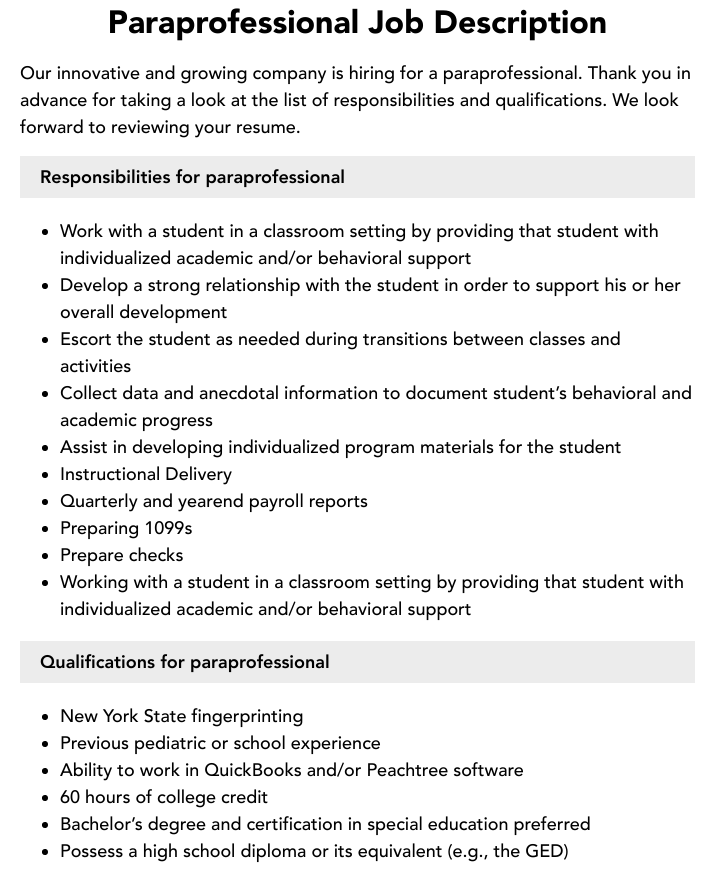
A purchasing director is responsible for managing the purchasing department of an organization. They are responsible for developing and implementing purchasing strategies, negotiating contracts with suppliers, and managing the procurement process. Purchasing directors typically have a bachelor’s degree in business administration or a related field, and several years of experience in purchasing or supply chain management.
Purchasing directors play a vital role in an organization’s success. They are responsible for ensuring that the organization gets the goods and services it needs at the best possible price. Purchasing directors also work closely with other departments within the organization to ensure that purchasing decisions are aligned with the organization’s overall goals and objectives.
The main article topics will discuss the following:
- The different types of purchasing director job descriptions
- The skills and qualifications that purchasing directors need
- The responsibilities of purchasing directors
- The benefits of working as a purchasing director
1. Procurement
Procurement is a critical function for any organization, and it is the responsibility of the purchasing director to manage the procurement process effectively. This involves:
- Sourcing: Identifying and evaluating potential suppliers.
- Negotiation: Negotiating contracts with suppliers to get the best possible price and terms.
- Contracting: Managing the contracting process to ensure that all legal requirements are met.
An effective procurement process can save an organization a significant amount of money and improve its efficiency. Purchasing directors who are skilled in procurement can help their organizations to achieve their goals and objectives.
2. Budget Management
Budget management is an essential part of any purchasing director job description. Purchasing directors are responsible for developing and managing purchasing budgets to ensure that their organizations get the goods and services they need at the best possible price. This involves:
- Developing purchasing budgets: Purchasing directors work with other departments within the organization to develop purchasing budgets. These budgets outline the amount of money that the organization can spend on goods and services.
- Managing purchasing budgets: Purchasing directors are responsible for managing purchasing budgets throughout the year. This involves tracking actual spending against budgeted amounts and making adjustments as needed.
Effective budget management can save an organization a significant amount of money. Purchasing directors who are skilled in budget management can help their organizations to achieve their goals and objectives.
Real-life example: A manufacturing company was able to save 10% on its annual purchasing budget by implementing a new budget management system. The new system gave the purchasing director greater visibility into spending and allowed them to make more informed decisions about where to allocate funds.
Practical significance: Budget management is a critical skill for purchasing directors. By developing and managing purchasing budgets effectively, purchasing directors can help their organizations to save money and achieve their goals and objectives.
3. Supplier Management
Supplier management is a critical part of any purchasing director job description. Purchasing directors are responsible for identifying, evaluating, and managing suppliers to ensure that their organizations get the goods and services they need at the best possible price. This involves:
- Identifying suppliers: Purchasing directors work with other departments within the organization to identify potential suppliers. This involves researching different suppliers, attending trade shows, and networking with other professionals.
- Evaluating suppliers: Once potential suppliers have been identified, purchasing directors must evaluate them to determine which ones are the best fit for their organization. This involves assessing the supplier’s quality, price, delivery time, and financial stability.
- Managing suppliers: Purchasing directors are responsible for managing relationships with suppliers. This involves negotiating contracts, monitoring supplier performance, and resolving any issues that may arise.
Effective supplier management can save an organization a significant amount of money and improve its efficiency. Purchasing directors who are skilled in supplier management can help their organizations to achieve their goals and objectives.
Real-life example: A retail company was able to reduce itsby 15% by implementing a new supplier management program. The new program helped the company to identify and evaluate new suppliers, and to negotiate better contracts with existing suppliers.
Practical significance: Supplier management is a critical skill for purchasing directors. By identifying, evaluating, and managing suppliers effectively, purchasing directors can help their organizations to save money and achieve their goals and objectives.
4. Team Management
Team management is a critical aspect of any purchasing director job description. Purchasing directors are responsible for leading and managing a team of purchasing professionals to achieve the organization’s goals and objectives. This involves:
- Providing leadership and direction: Purchasing directors provide leadership and direction to their team by setting goals, providing guidance, and motivating team members.
- Managing performance: Purchasing directors manage the performance of their team by setting expectations, providing feedback, and rewarding success.
- Developing and training staff: Purchasing directors develop and train their staff to improve their skills and knowledge.
- Building a positive and productive work environment: Purchasing directors build a positive and productive work environment by creating a culture of respect, trust, and collaboration.
Effective team management can help purchasing directors to achieve their goals and objectives. By leading and managing their team effectively, purchasing directors can create a high-performing team that is motivated and engaged.
FAQs about Purchasing Director Job Description
This section provides answers to frequently asked questions about purchasing director job descriptions.
Question 1: What is a purchasing director?
A purchasing director is responsible for managing the purchasing department of an organization. They are responsible for developing and implementing purchasing strategies, negotiating contracts with suppliers, and managing the procurement process.
Question 2: What are the key responsibilities of a purchasing director?
The key responsibilities of a purchasing director include:
- Developing and implementing purchasing strategies
- Negotiating contracts with suppliers
- Managing the procurement process
- Managing the purchasing department budget
- Leading and managing a team of purchasing professionals
Question 3: What are the educational and experience requirements for a purchasing director?
Purchasing directors typically have a bachelor’s degree in business administration or a related field. They also typically have several years of experience in purchasing or supply chain management.
Question 4: What are the skills and qualities that are important for a purchasing director?
Important skills and qualities for a purchasing director include:
- Strong negotiation skills
- Excellent communication and interpersonal skills
- A deep understanding of the procurement process
- The ability to manage a team and a budget
- A strong work ethic and a commitment to excellence
Question 5: What is the job outlook for purchasing directors?
The job outlook for purchasing directors is expected to be good over the next few years. As businesses continue to globalize and supply chains become more complex, the demand for skilled purchasing directors is expected to increase.
Question 6: What is the average salary for a purchasing director?
The average salary for a purchasing director in the United States is $105,590. However, salaries can vary depending on experience, education, and location.
Summary: A purchasing director is a critical role in any organization. They are responsible for managing the procurement process and ensuring that the organization gets the goods and services it needs at the best possible price. Purchasing directors typically have a bachelor’s degree in business administration or a related field, and several years of experience in purchasing or supply chain management.
Transition to the next article section: The next section of this article will discuss the benefits of working as a purchasing director.
Purchasing Director Job Description Tips
A purchasing director is responsible for managing the purchasing department of an organization. They are responsible for developing and implementing purchasing strategies, negotiating contracts with suppliers, and managing the procurement process. To be successful in this role, there are several tips that purchasing directors can follow:
Tip 1: Develop a strong understanding of the procurement process.
The procurement process is the process by which an organization acquires goods and services. Purchasing directors need to have a strong understanding of this process in order to be able to effectively manage it. This includes understanding the different steps in the process, the different types of contracts that can be used, and the different negotiation techniques that can be employed.
Tip 2: Build strong relationships with suppliers.
Suppliers are an important part of any organization’s supply chain. Purchasing directors need to build strong relationships with suppliers in order to ensure that the organization gets the goods and services it needs at the best possible price. This includes communicating regularly with suppliers, visiting their facilities, and working with them to resolve any issues that may arise.
Tip 3: Stay up-to-date on industry trends.
The procurement industry is constantly changing. Purchasing directors need to stay up-to-date on industry trends in order to be able to make informed decisions about how to manage the procurement process. This includes reading industry publications, attending conferences, and networking with other purchasing professionals.
Tip 4: Be a strong negotiator.
Negotiation is an important part of the purchasing process. Purchasing directors need to be strong negotiators in order to be able to get the best possible price for the goods and services that the organization needs. This includes being prepared for negotiations, understanding the different negotiation techniques, and being able to walk away from a negotiation if necessary.
Tip 5: Be a team player.
Purchasing directors typically work with a team of other professionals, including buyers, suppliers, and other members of the supply chain. Purchasing directors need to be able to work effectively with others in order to be successful. This includes being able to communicate effectively, collaborate with others, and resolve conflicts.
Summary: By following these tips, purchasing directors can increase their chances of success in their role. Purchasing directors who are knowledgeable about the procurement process, have strong relationships with suppliers, and are skilled negotiators can help their organizations to achieve their goals and objectives.
Transition to the article’s conclusion: The conclusion of this article will discuss the benefits of working as a purchasing director.



